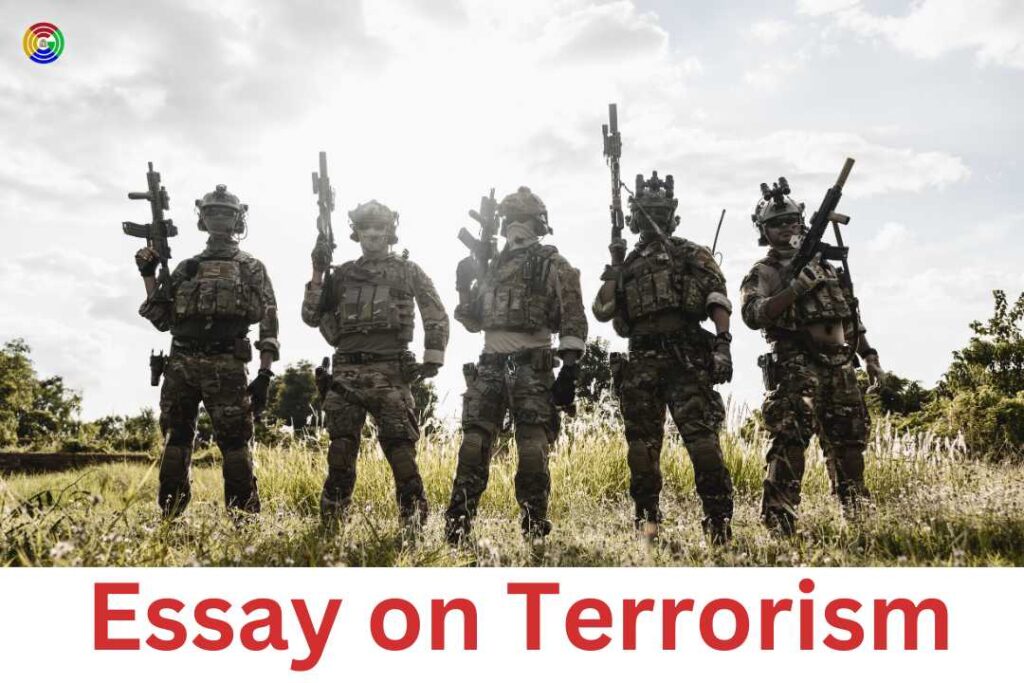Introduction
Terrorism is one of the most serious challenges faced by the modern world. It is a global threat that affects people of all nations, regardless of their race, religion, or nationality. Terrorism can be defined as the use of violence, fear, and intimidation to achieve political, religious, or ideological goals. Over the past few decades, acts of terrorism have escalated, causing significant loss of life, destruction of property, and widespread fear among people.
Causes of Terrorism
Terrorism does not have a single cause; rather, it is fueled by a combination of factors. Some of the most common causes of terrorism include:
- Political Instability – Many terrorist activities arise due to political unrest in a country. Weak governments, civil wars, and authoritarian regimes often create conditions that lead to terrorism.
- Religious Extremism – Some terrorist groups use religion as a tool to justify their violent actions. They manipulate religious teachings to recruit people and spread their radical ideologies.
- Economic Disparities – Poverty, unemployment, and lack of opportunities push some individuals towards extremist groups, as they seek financial security or a sense of purpose.
- Social Injustice – Discrimination, marginalization, and human rights violations can fuel feelings of resentment and frustration, leading individuals or groups to resort to terrorism as a means of retaliation.
- Foreign Intervention – Many times, interference by foreign nations in the affairs of a country creates conflicts that lead to the rise of terrorist organizations. For example, wars and military invasions often create power vacuums, which are exploited by terrorist groups.
Forms of Terrorism
Terrorism can take various forms, including:
- Domestic Terrorism – Acts of terrorism that occur within a country by its own citizens. Examples include bombings, shootings, and violent attacks on public places.
- International Terrorism – When terrorist activities cross national borders and involve foreign targets, it is referred to as international terrorism. Groups like Al-Qaeda and ISIS have been responsible for several such attacks worldwide.
- Cyber Terrorism – With advancements in technology, terrorists are now using the internet to spread propaganda, recruit members, and conduct cyber-attacks on critical infrastructure.
- State-Sponsored Terrorism – Some governments support terrorist groups financially or militarily to achieve political objectives against rival nations.
- Bioterrorism – The use of biological agents like viruses or bacteria to cause harm to large populations is another emerging form of terrorism.
Effects of Terrorism
The impact of terrorism is devastating and long-lasting. Some of the major consequences include:
- Loss of Lives – Terrorist attacks often result in the death of innocent people, leaving families shattered and communities traumatized.
- Economic Damage – Businesses suffer, tourism declines, and foreign investments decrease in countries affected by terrorism, leading to economic instability.
- Psychological Effects – Fear, anxiety, and trauma caused by terrorist incidents affect mental health and disrupt normal life.
- Political Consequences – Governments may impose strict security measures and curtail civil liberties in response to terrorism, leading to debates over human rights and freedoms.
- Increased Hate and Division – Terrorist attacks often fuel hatred among communities, leading to religious, racial, or ethnic conflicts.
Measures to Combat Terrorism
Fighting terrorism requires a comprehensive and coordinated approach at both national and international levels. Some of the measures that can be taken include:
- Strengthening Intelligence and Security – Governments must invest in intelligence agencies and modern surveillance technologies to detect and prevent terrorist activities.
- International Cooperation – Countries must work together to share intelligence, track terrorist networks, and take joint action against terrorism.
- Addressing Root Causes – Reducing poverty, providing education, and promoting employment opportunities can help prevent people from being drawn into terrorism.
- Promoting Religious Tolerance – Encouraging interfaith dialogue and spreading messages of peace can counter extremist ideologies.
- Using Technology Wisely – Governments and tech companies should work together to monitor and regulate online platforms that terrorists use for propaganda and recruitment.
Conclusion
Terrorism remains a major challenge for the world, but it can be tackled through unity, awareness, and strong policies. It is important to address the root causes of terrorism and ensure that people are educated about peace and harmony. Every individual, society, and government must work together to create a world free from the fear of terrorism. Only then can we achieve lasting peace and security for future generations.
Frequently Asked Questions (FAQs)
1. What is terrorism?
Ans:- Terrorism is the use of violence, threats, or intimidation to achieve political, religious, or ideological objectives. It often targets innocent civilians to create fear and chaos.
2. What are the main causes of terrorism?
Ans:- Some major causes of terrorism include political instability, religious extremism, economic disparities, social injustice, and foreign intervention.
3. What are the different types of terrorism?
Ans:- Terrorism can be classified into various types, such as:
Domestic Terrorism (within a country)
International Terrorism (across borders)
Cyber Terrorism (using the internet for attacks)
State-Sponsored Terrorism (supported by governments)
Bioterrorism (using biological agents for harm)
4. How does terrorism affect society?
Ans:- Terrorism leads to loss of lives, economic instability, psychological trauma, political turmoil, and increased hatred among communities.
5. What measures can be taken to prevent terrorism?
Ans:- Preventing terrorism requires:
Strong intelligence and security forces
International cooperation
Addressing root causes like poverty and unemployment
Promoting religious tolerance
Regulating online platforms to counter radicalization
6. Which are the most affected countries by terrorism?
Ans:- Countries like Afghanistan, Iraq, Pakistan, Syria, and Nigeria have been among the most affected by terrorism in recent years.
7. What is the role of technology in terrorism?
Ans:- Terrorists use technology for propaganda, recruitment, cyber-attacks, and communication. However, governments also use technology for surveillance and counter-terrorism efforts.
8. How can individuals contribute to preventing terrorism?
Ans:- People can help by reporting suspicious activities, promoting peace and tolerance, avoiding spreading misinformation, and supporting anti-terrorism initiatives.




